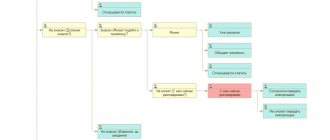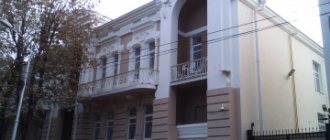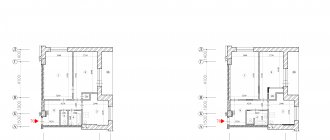The procedure for collecting debt on utility bills for residential premises from individuals
The obligation to pay for living quarters and utilities is provided for in Art. 153 Housing Code of the Russian Federation.
The norms of paragraph 4 of Art. 154 of the Housing Code of the Russian Federation establishes that fees for utilities include fees for cold water, hot water, electricity, thermal energy, gas, domestic gas in cylinders, solid fuel in the presence of stove heating, fees for wastewater disposal, handling of solids municipal waste.
In addition, the owners of residential buildings bear the costs of their maintenance and repair, and also pay for utilities in accordance with agreements concluded, including in electronic form using the system, with persons carrying out the relevant types of activities (clause 3 of Article 154 Housing Complex of the Russian Federation).
In cases provided for in paragraph 5 of Art. 154 of the Housing Code of the Russian Federation, payment for utility resources consumed during the use and maintenance of common property in an apartment building is also included in the payment for utility services.
The procedure for providing utility services to owners and users of premises in apartment buildings and residential buildings is established by the Rules approved by Decree of the Government of the Russian Federation of May 6, 2011 N 354 (hereinafter referred to as the Rules).
In accordance with clause 4 of the Rules, the consumer can be provided with the following types of utility services: cold and hot water supply, sewerage, electricity supply, gas supply, heating, solid municipal waste management.
The provision of utility services to the consumer is carried out on the basis of a paid agreement containing provisions for the provision of utility services (clause 6 of the Rules).
The provision of utility services is provided by the management organization, partnership or cooperative, or the organization specified in paragraphs. “b” clause 10 of the Rules, through the conclusion of agreements with resource supplying organizations on the acquisition of utility resources for the purpose of using such resources in the provision of utility services to consumers (clause 13 of the Rules).
Payment for residential premises and utilities is paid monthly before the tenth day of the month following the end of the month, unless a different period is established by the management agreement of the apartment building or by a decision of the general meeting of members of the homeowners association, housing cooperative or other specialized consumer cooperative, on the basis of payment documents or information on the amount of payment for residential premises and utilities posted in the system or in other information systems that allow you to pay for residential premises and utilities (Article 155 of the Housing Code of the Russian Federation, clauses 66, 67 of the Rules).
Taking into account the deadline for payment of utility bills, provided for in Art. 155 of the Housing Code of the Russian Federation, debt for provided utility services arises from the 11th day of the month following the payment period.
In accordance with Part 14 of Art. 155 of the Housing Code of the Russian Federation, in case of failure to pay for utility services, a penalty is charged in the amount of 1/300 of the refinancing rate of the Central Bank of the Russian Federation for the entire amount of the debt.
Debt collection procedure
In accordance with paragraphs. “e(3)” clause 32 of the Rules, the contractor has the right to notify the consumer about the presence of arrears in payment of utility services or arrears in the payment of penalties (fines, penalties) by sending an SMS message via a mobile radiotelephone network to the consumer’s user equipment, a telephone call with a recording conversation, email message or through the consumer’s personal account in the state information system of housing and communal services, by posting on the official page of the contractor on the Internet or by transmitting voice information to the consumer over a fixed telephone network.
Meanwhile, for individuals, the pre-trial procedure for collecting debts on utility bills is not directly provided for by current legislation. However, as a rule, when a debt arises, the management company sends the debtor a notice of the need to repay the debt.
If there is no positive reaction from the debtor, the management company has the right to apply to the court with a corresponding application to collect debt on utility bills. The limitation period is 3 years (Article 196 of the Civil Code of the Russian Federation). According to paragraph 41 of the Resolution of the Plenum of the Supreme Court of the Russian Federation dated June 27, 2017 N 22 “On some issues of consideration by courts of disputes regarding payment for utilities and residential premises occupied by citizens in an apartment building under a social tenancy agreement or owned by them by right of ownership” to disputes related to with the payment by citizens of housing and utilities, a general three-year limitation period is applied, calculated from the day when the person learned or should have learned about the violation of his right and who is the proper defendant in the claim for the protection of this right (Art. Art. 196, 200 of the Civil Code of the Russian Federation). The limitation period for claims for collection of debt for payment of housing and utilities is calculated separately for each monthly payment (Part 1 of Article 155 of the RF Housing Code and Clause 2 of Article 200 of the Civil Code of the Russian Federation).
Based on the norms of Art. Art. 121, 122 of the Code of Civil Procedure of the Russian Federation consideration of a claim for collection of debt not exceeding 500 thousand rubles. payment for living quarters and utilities, as well as telephone services, is carried out within the framework of writ proceedings.
According to paragraphs. 1 clause 1 art. 23 of the Code of Civil Procedure of the Russian Federation, cases of issuing a court order are considered by a magistrate.
Disputes related to the payment by citizens of residential premises and utilities are considered by magistrates, as well as other courts of general jurisdiction in civil proceedings (Articles 22 and 23, Chapter 11, 12 and 21.1 of the Code of Civil Procedure of the Russian Federation) (clause 4 of the Resolution Plenum of the Supreme Court of the Russian Federation dated June 27, 2017 N 22 “On some issues of consideration by courts of disputes regarding payment for utilities and residential premises occupied by citizens in an apartment building under a social tenancy agreement or owned by them by right of ownership”).
According to para. 1 clause 5 of the Resolution of the Plenum of the Supreme Court of the Russian Federation dated June 27, 2017 N 22 “On some issues of consideration by the courts of disputes regarding the payment of utilities and residential premises occupied by citizens in an apartment building under a social tenancy agreement or owned by them by right of ownership” requirements for the collection of the amount debts for payment of residential premises and utilities not exceeding five hundred thousand rubles are subject to consideration in the order of writ proceedings (clause 1, part 1, article 23, part 1, article 121, paragraphs 10 and 11, article 122 of the Code of Civil Procedure of the Russian Federation) .
According to Part 2 of Art. 123 of the Code of Civil Procedure of the Russian Federation, an application for a court order is paid with a state duty in the amount established by the federal law on taxes and fees, which is 50% of the amount of the state duty established by paragraphs. 1 clause 1 art. 333.19 of the Tax Code of the Russian Federation (clause 2, clause 1, article 333.19 of the Tax Code of the Russian Federation).
The content of the application for the issuance of a court order and its form are established by Art. 124 Code of Civil Procedure of the Russian Federation.
A court order on the merits of the stated claim is issued within five days from the date of receipt of the application for the court order. A court order is issued without summoning the claimant and debtor and conducting a trial. The court examines the information presented in the claimant's application for a court order and the documents attached to it to substantiate the position of this person and issues a court order on the basis of the documents presented (Article 126 of the Code of Civil Procedure of the Russian Federation).
The judge, within five days from the date of issuance of the court order, sends a copy of the court order to the debtor, who has the right to submit objections to its execution within 10 days (Article 128 of the Code of Civil Procedure of the Russian Federation).
If the debtor does not submit objections to the court within the prescribed period, the judge issues to the collector a second copy of the court order, certified by the official seal of the court, for presentation for execution or sends it to the bailiff for execution (Article 130 of the Code of Civil Procedure of the Russian Federation).
If the debtor raises objections regarding the execution of the court order within the prescribed period, it is subject to cancellation (Article 129 of the Code of Civil Procedure of the Russian Federation).
If the amount of claims exceeds the established limit of 500 thousand rubles, or the court has issued a ruling to cancel the court order, the application of the management company is considered in the court of first instance through litigation in the manner provided for in subsection. Section II II Code of Civil Procedure of the Russian Federation at the defendant’s place of residence.
Attached to the application for an order or statement of claim: a receipt for payment of the state duty, an extract from the defendant’s personal account, bank details of the utility service provider, reports on services provided, documents confirming non-payment, calculation of debt and accrued fines, documents evidencing pre-trial settlement ( if available), other necessary documents.
Based on the results of the consideration of the case, the court makes a decision in accordance with Chapter. 16 Code of Civil Procedure of the Russian Federation.
The court decision comes into force after a month from the date of adoption of the court decision in final form (Articles 209, 321 of the Code of Civil Procedure of the Russian Federation).
Based on a court decision that has entered into legal force, the court issues a writ of execution to the plaintiff to collect the debt from the debtor or, at the request of the plaintiff, sends it to a bailiff for enforcement.
During the trial, as well as after the court decision, the debtor and the management company can agree to enter into a settlement agreement, which will include conditions beneficial to both parties. The settlement agreement is subject to mandatory approval by the court in which the case of collection of debt for utilities is being considered (Article 173 of the Code of Civil Procedure of the Russian Federation).
The procedure for forced collection of debt is provided for by Federal Law dated October 2, 2007 N 229-FZ “On Enforcement Proceedings” (hereinafter referred to as the Law on Enforcement Proceedings).
The following enforcement measures may be applied to individuals (clause 3 of Article 68 of the Law on Enforcement Proceedings):
foreclosure on the debtor's property, including cash and securities;
foreclosure on periodic payments received by the debtor due to labor, civil or social legal relations;
foreclosure on the property rights of the debtor, including the right to receive payments for enforcement proceedings in which he acts as a claimant, the right to receive payments for hire, rent, as well as exclusive rights to the results of intellectual activity and means of individualization, rights of claim under agreements on the alienation or use of the exclusive right to a result of intellectual activity and a means of individualization, the right to use the result of intellectual activity or a means of individualization belonging to the debtor as a licensee;
other measures provided for in Art. 68 of the Law on Enforcement Proceedings.
| print version | Version for MS Word | Consumer rights Protection |
When will the municipality be forced to pay debts for utilities?
Often, municipalities refuse to pay debts for utilities if the premises were rented out or provided for free use, and the housing was transferred under a social tenancy agreement. However, the courts do not always side with local authorities in such cases.
Who is required to pay utility bills?
Citizens and organizations are obliged to pay timely and in full for housing and utilities (Article 153 of the Housing Code). The obligation to pay a fee arises:
- from the tenant of the residential premises under a social rental agreement from the moment of conclusion of such an agreement;
- a tenant of residential premises of a municipal housing stock from the moment of concluding a lease agreement;
- the tenant of the residential premises of the municipal housing stock from the moment of concluding the rental agreement;
- owner of the premises.
Management companies receive payment for the provision of services for the maintenance of common property in apartment buildings, and resource supply organizations receive payment for utility resources. However, if the owners of premises in apartment buildings at the general meeting did not decide to switch to direct contracts with resource supply organizations, they transfer fees for utility resources to the management organization.
Owners of non-residential premises are required to enter into direct contracts with resource supply organizations for cold and hot water supply, sanitation, electricity supply, gas supply, and heating. This obligation is provided for in paragraph 3 of clause 7 of the Rules for the provision of utility services. An exception is the situation when the tenant has entered into a direct agreement with the resource supply or management organization.
Document: The Government approved the Rules for the Provision of Public Utilities by Resolution No. 354 dated 05/06/2011
The owners of non-residential premises transfer payments for utility resources consumed during the maintenance of common property in apartment buildings to management companies; they do not enter into direct contracts. The tenant of non-residential premises may enter into a direct agreement with the resource supply or management organization.
When will the municipality pay for residential utilities?
Let's look at when the local government body of a municipality is obliged to repay the debt for consumed utility resources and the maintenance of housing in municipal residential premises, and when not.
The premises are not occupied
If the premises are not occupied, the municipality will have to pay off the debt
When considering disputes regarding the collection of debts for housing and utilities in relation to residential premises in municipal ownership, the fact of their occupancy is of primary legal importance. If the premises are occupied, the occupants are responsible for payment.
EXAMPLE 1. A heat supply organization filed a lawsuit demanding the collection of arrears in payment of bills from the municipal administration.
The court found that some of the residential premises in the disputed building are occupied on the basis of social tenancy agreements, and some are owned by citizens. There are no unoccupied premises of municipal property in the building. The court indicated that the tenant of a residential premises under a social tenancy agreement is obliged to promptly pay for residential premises and utilities (clause 5, part 3, article 67 of the Housing Code). Therefore, the municipal administration is an improper defendant in the case. The court refused to satisfy the claim (resolution of the Arbitration Court of the North-Western District dated October 10, 2018 No. F07-10580/2018 in case No. A26-7289/2017).
If municipally owned residential premises are not occupied, the municipality will have to pay off the debt.
EXAMPLE 2. A heat supply organization filed a lawsuit against the administration of a municipality to collect arrears in payment for a utility resource supplied to municipal residential premises. There were no contracts with the management company.
The court satisfied the claims partially, collecting the debt in respect of those residential premises that were not occupied. He refused to satisfy the remaining demands. At the same time, the court noted that the local government bodies of the municipality are obliged to bear the costs of maintaining the residential premises and pay for utilities only before occupancy. Some of the premises were occupied, which the defendant was able to prove (Supreme Court ruling dated August 22, 2017 No. 303-ES17-10671 in case No. A73-5840/2016).
The fact of settlement in accordance with the established procedure has not been proven
To avoid debt collection, prove not only the fact of concluding a social tenancy agreement, but also the fact that the citizen moved into the residential premises in the prescribed manner. This procedure provides for the inspection of the residential premises by the tenant, the transfer of the premises according to the acceptance certificate, and the receipt by the tenant of the keys to the premises. The obligation to transfer the residential premises rests with the landlord (clause 1, part 2, article 65 of the Housing Code). If he did not fulfill it, and the tenant did not shy away from accepting the premises, the latter is not obliged to pay the costs of maintaining housing and utilities. This must be done by the landlord.
EXAMPLE 3. A heat supply organization filed a claim against a citizen to collect a debt. The apartment is municipal, a social rental agreement has been concluded with the citizen.
The court of first instance satisfied the stated requirements. However, the appeal did not agree with his decision. There was no evidence in the case that the citizen, having signed a social tenancy agreement, accepted residential premises from the municipality. He did not live in the premises, was not registered, and did not use public services. Consequently, the residential premises were not occupied in the prescribed manner and the owner of the property, the municipality, must pay for housing and communal services (decision of the Primorsky Regional Court dated December 15, 2015 in case No. 33-11033/2015).
If the landlord transferred the residential premises in the prescribed manner, the tenant inspected the premises, received the keys to it and signed the acceptance certificate, but did not move in on time, then the tenant will have to pay for utilities.
EXAMPLE 4. The management organization charged a citizen a fee for residential premises and utilities. The tenant considered that the fee was calculated unreasonably and demanded a recalculation in court. According to the plaintiff, he did not move into the premises and therefore should not pay for housing and utilities.
The court refused to satisfy the stated demands. The plaintiff inspected the apartment and was not deprived of access to it, but did not enter it immediately. The fact that a citizen has not lived in an apartment for a long time does not mean that he is exempt from the obligation to pay fees. The court found that the landlord provided housing in accordance with the established procedure. The plaintiff was unable to prove the untimely delivery of the keys to the apartment (appeal ruling of the St. Petersburg City Court dated July 28, 2015 No. 33-11562/2015 in case No. 2-1480/2015).
The tenant is obliged to pay for the maintenance of the residential premises and utilities from the moment when the actual opportunity to move into the apartment arose after its transfer in the prescribed manner. An exception is situations where the inability to use the apartment for its intended purpose is due to dishonest actions of the landlord. For example, the local administration did not provide the keys, refused to hand over the apartment, etc. The Presidium of the Supreme Arbitration Court took a similar position. The local government bears the cost of paying for utility services only until the municipal residential premises are occupied in the prescribed manner (Resolution of the Presidium of the Supreme Arbitration Court dated June 11, 2013 No. VAS-15066/12 in case No. A65-21717/2011).
Important to remember! The owner bears the burden of maintaining the property (Article 210 of the Civil Code). It does not matter whether such property is in state, municipal or private ownership
When will the municipality pay for utilities in non-residential premises?
The owner has the right to dispose of the property belonging to him, including renting it out (Article 209 of the Civil Code). It is the owner who is responsible for the proper maintenance of the property belonging to him (Article 210 of the Civil Code).
Previously, courts imposed the obligation to pay fees for the maintenance of common property on the tenant.
EXAMPLE 5. The management organization demanded that the tenant of non-residential premises in a residential building enter into an agreement for the maintenance of common property and pay expenses. The entrepreneur objected because she believed that the owner was obliged to do this.
The court did not impose an obligation on the defendant to conclude an agreement, but recovered from her the costs of maintaining the common property. In this case, the court referred to the provisions of Article 616 of the Civil Code. It states that the tenant must keep the property transferred to him in proper condition (resolution of the Federal Antimonopoly Service of the Moscow District dated 04/06/2011 No. KG-A41/2364-11 in case No. A41-20314/10).
Courts collect debts for utilities in leased municipal non-residential premises from local authorities
In 2011, the Presidium of the Supreme Arbitration Court indicated that neither the Civil nor the Housing Code contains provisions imposing the obligation to pay for the maintenance of premises and utilities on tenants of non-residential premises, including those located in multi-apartment residential buildings. Article 616 of the Civil Code is not applicable to these legal relations, since it regulates exclusively contractual relations between the tenant and the lessor (Resolution of the Presidium of the Supreme Arbitration Court of May 21, 2013 No. 13112/12 in case No. A72-6044/2011). Today, courts collect debts for utilities in leased municipal non-residential premises from their owners.
EXAMPLE 6. A resource supplying organization demanded that the municipal administration pay off the debt for thermal energy and hot water supplied to municipal non-residential premises. The officials refused because they had transferred the non-residential premises for rent.
The court recovered the debt for utility bills from the municipality as the owner of the premises. The resource supplying organization is not obliged to find out who actually uses the premises. The tenant of the non-residential premises did not enter into an agreement with her for the supply of utilities in accordance with current legislation and the terms of the lease agreement. Therefore, the owner of the non-residential premises must pay for the services (resolution of the Eleventh Arbitration Court of Appeal dated January 12, 2018 No. 11AP-17630/2017 in case No. A72-12672/2017).
The owner of a municipal non-residential premises leased is also required to collect the debt for the supplied utilities in relation to the common property of the apartment building.
The owner of non-residential premises in an apartment building is obliged to pay for the maintenance of common property, unless otherwise provided by the lease agreement
EXAMPLE 7. The management company filed a claim against the city district administration to collect debt for heating in relation to the common property of an apartment building. The defendant referred to the fact that the property was leased. The court indicated that the owner of non-residential premises in an apartment building is obliged to bear the costs of maintaining common property, unless otherwise provided by the lease agreement (Articles 210, 249 of the Civil Code and Part 1 of Article 39, Article 158 of the Housing Code). If there is no agreement between the tenant and the resource supplying organization, the obligation to pay for utilities lies with the owner (lessor). The court satisfied the plaintiff’s demands (resolution of the Arbitration Court of the Far Eastern District dated September 25, 2018 No. F03-3862/2018 in case No. A51-20539/2017).
If you have leased municipal property, recover the cost of utility bills from the tenant. This right of local governments is confirmed by judicial practice.
EXAMPLE 8. A resource supplying organization filed a lawsuit against the municipal administration to collect debt for utilities supplied to municipal non-residential premises. The defendant believed that it was not he who should pay the rent, but the tenant.
The court imposed the costs of paying for utilities on the owner of the property - the municipality. At the same time, the court indicated that the owner of the leased property is not deprived of the right to demand reimbursement from the tenant for the costs of paying for utilities in non-residential premises occupied under a lease agreement (resolution of the Seventh Arbitration Court of Appeal dated 01/09/2018 No. 07AP-9600/2017 on case No. A67-6032/2017).
CONCLUSIONS AND RECOMMENDATIONS:
1. The municipality must repay debts to the resource supply or management organization for utility or operational services if the municipal residential premises are not transferred to the tenant. If the tenant does not move in, expenses may be recovered from the owner. To avoid debt collection, prove that you not only entered into a social tenancy agreement, but also moved the tenant into the premises in the prescribed manner. The municipality will have to pay for utilities or maintenance services if the municipal housing unit is not transferred to the tenant.
2. Expenses for paying for utilities and maintaining common property in municipal non-residential premises leased are subject to recovery from the owner, regardless of the terms of the lease agreement. The landlord subsequently has the right to recover damages from the tenant.
3. If an agreement has been concluded between the tenant of municipal property and the management or resource supplying organization for the performance of work on the maintenance of common property or for the supply of utilities, this is the basis for collecting debt from the tenant. We recommend monitoring the conclusion of such agreements by tenants and requesting copies of them.
Timely payment of housing and communal services is the responsibility of owners and tenants of premises
One of the most significant tasks and increasing problems every year for all heads of management companies and other organizations of the housing and communal services complex is the effective legal management of receivables of industry enterprises.
Currently, household receivables for payment for housing and communal services are the most common type of debt in the relationship between management companies, resource supply organizations and consumers of housing and communal services.
One of the indicators of the effective work of a management organization is the collection of payments for housing and communal services. The decline in payment discipline jeopardizes the implementation of socially significant projects, ongoing repairs of entrances and utility infrastructure and affects work to prepare the housing stock for the heating season.
The management organizations of the Podolsk City District regularly work with debtors to pay for housing and communal services.
For example, in the Klimovsk microdistrict, since the beginning of this year, the management organization of the Municipal Unitary Enterprise “Single Customer Service” has sent to court 290 statements of claim for the collection of debt for housing and communal services in the amount of more than 31 million rubles. Employees of the management organization carried out 186 events to visit debtors with explanations about the need to pay the debt pre-trial, placed more than 8 thousand advertisements on information stands, sent 433 notifications by Russian Post, and also placed more than 4 thousand claims in mailboxes and made more than 5 thousand calls to debtors.
As a result of the walk-through and explanatory work by specialists of the subscriber department of the Municipal Unitary Enterprise "SEZ", in September 2021, residents who had debts for housing and communal services paid voluntarily over 2.5 million rubles. These measures made it possible to reduce the population's receivables to the municipal unitary enterprise "SEZ", work continues daily.
Timely and full payment of housing and communal services is the responsibility of owners and tenants of premises.
According to Art. 153, art. 155 of the Housing Code of the Russian Federation and Art. 66 of the Rules for the Provision of Public Utilities, owners and tenants of residential premises are obliged to pay monthly fees for residential premises and utilities until the tenth day of the month following the expiration of the month, unless otherwise provided by the management agreement for an apartment building.
Source: Committee on Housing and Communal Services of the Administration of the City District of Podolsk
0
0
Information memo
on the composition of the monthly payment for residential premises
In accordance with Article 154 of the Housing Code of the Russian Federation, the structure of payment for residential premises and utilities for the tenant of residential premises (residing under a warrant, a social tenancy agreement or a rental agreement for residential premises of a state or municipal housing stock) includes:
1) payment for the use of residential premises ( rental fee );
2) payment for the maintenance of residential premises , which includes fees for services, work on managing an apartment building, for the maintenance and current repairs of common property in an apartment building, as well as for cold water, hot water, electricity consumed during the use and maintenance of common property in an apartment building , for the disposal of wastewater for the purpose of maintaining common property in the apartment building.
3) utility fees.
Payment for residential premises and utilities for the owner of premises in an apartment building includes:
1) payment for the maintenance of residential premises , which includes fees for services, work on managing an apartment building, for the maintenance and ongoing repairs of common property in an apartment building, for utility resources consumed during the use and maintenance of common property.
2) capital repair contribution;
3) utility fees.
Payment documents
Payment for residential premises and utilities is made on the basis of payment documents (receipts), including payment documents in electronic form, posted in the GIS housing and communal services system, submitted no later than the first day of the month following the expired month.
Receipts on paper, packed in envelopes, are provided to the mailboxes corresponding to the apartment address.
Phone accountant for settlement operations: 301-10-02
Reception hours for citizens: Monday 09.00-13.00, 13.45-18.00
Wednesday 13.45-18.00
Procedure and terms of payment
Payment for housing and communal services is paid monthly no later than the 10th day of the month following the billing month. By virtue of Art. 155 of the Housing Code of the Russian Federation, persons who untimely and (or) did not fully pay for housing and utilities, as well as contributions for major repairs, are required to pay penalties. The amount of the fine is provided for in paragraphs 14, 14.1 of Art. 155 Housing Code of the Russian Federation.
Information on the sizes of prices (tariffs) and standards applied when charging for housing and communal services, as well as details of the regulations by which they are established, are posted in the GIS housing and communal services system, on the website of JSC Management Company Volgogradskiy Microdistrict (www.uk- mvolga.ru), on the information stands of the management company.
Payment terms
Invoice payment due date
According to Article 155 of the Housing Code of the Russian Federation, payment for residential premises and utilities is paid monthly before the tenth day of the month following the expiration of the month, unless a different period is established by the management agreement of an apartment building or by a decision of the general meeting of members of the homeowners association, housing cooperative or other specialized a consumer cooperative created to meet the housing needs of citizens in accordance with the federal law on such a cooperative.
Penalty for late payment
According to clause 14, clause 14.1 of Article 155 of the Housing Code of the Russian Federation, Persons who have lately and (or) not fully paid for housing and utilities are required to pay the lender a penalty in the amount of one three hundredth of the refinancing rate of the Central Bank of the Russian Federation, valid on the day of actual payment , from the amount not paid on time for each day of delay, starting from the thirty-first day following the day of the established payment due date, until the day of actual payment made within ninety calendar days from the date of the established payment due date, or until the expiration of ninety calendar days after the day of the due date for payment, if payment is not made within the ninety-day period. Starting from the ninety-first day following the day of the established payment deadline until the day of actual payment, penalties are paid in the amount of one hundred and thirtieth of the Central Bank refinancing rate in effect on the day of actual payment, of the amount not paid on time for each day of delay. An increase in the amounts of penalties established by this part is not allowed. (Part 14 as amended by Federal Law dated November 3, 2015 No. 307-FZ)
Owners of premises in an apartment building who have lately and (or) not fully paid contributions for capital repairs are required to pay a penalty to the capital repair fund in the amount of one three hundredth of the refinancing rate of the Central Bank of the Russian Federation, effective on the day of actual payment, of the amount not paid on time for each day of delay starting from the next day after the due date for payment until the day of actual payment. Payment of the specified penalties is carried out in the manner established for the payment of contributions for major repairs.
Payment for residential premises and utilities is made based on
:
1.
payment documents (including payment documents in electronic form posted in the system) submitted no later than the first day of the month following the end of the month, unless a different period is established by the management agreement of an apartment building or by a decision of the general meeting of members of a homeowners association, housing cooperative or other specialized consumer cooperative;
2.
information on the amount of payment for residential premises and utilities, arrears for payment of residential premises and utilities, posted in the system or in other information systems that allow payment for residential premises and utilities. Information on the amount of payment for residential premises and utilities and debts for payment of residential premises and utilities is information about charges in the system, information contained in the payment document submitted to the e-mail address of the service consumer or in the payment document received through information terminals.
2.1.
Payment documents, information on the amount of payment for residential premises and utilities and debts for payment of residential premises and utilities are subject to placement in the system within the period provided for in Part 2 of this article. (Part 2.1 introduced by Federal Law dated July 21, 2014 No. 263-FZ)
2.2.
In case of failure to place payment documents and information on the amount of payment for residential premises and utilities, arrears in payment for residential premises and utilities in the system within the period provided for in Part 2 of this article, citizens and organizations pay payment for residential premises and utilities by the tenth day the month following the expired month in which payment documents and the specified information were placed in the system. (Part 2.2 introduced by Federal Law dated July 21, 2014 No. 263-FZ)
2.3.
Information on the amount of payment for residential premises and utilities and arrears for payment of residential premises and utilities posted in the system must correspond to the information contained in the payment document submitted in accordance with paragraph 1 of part 2 of this article. If there is a discrepancy between the information contained in the payment document submitted in accordance with paragraph 1 of part 2 of this article, the information on the amount of payment for residential premises and utilities and the debt for payment for residential premises and utilities posted in the system, the information posted in system. (Part 2.3 introduced by Federal Law dated July 21, 2014 No. 263-FZ)
3.
Tenants of residential premises under a social tenancy agreement and a rental agreement for residential premises of the state or municipal housing stock pay a fee for the use of residential premises (rental fee) to the landlord of this residential premises.
4.
Tenants of residential premises under a social tenancy agreement and an agreement for the rental of residential premises of a state or municipal housing stock in an apartment building, which is managed by a management organization, pay a fee for the maintenance of residential premises, as well as a fee for utilities of this management organization, except for the case provided for in part 7.1 of this article. If the amount of the fee paid by the tenant of the residential premises is less than the amount of the fee established by the management agreement, the remaining part of the fee is paid by the landlord of this residential premises in the manner agreed with the management organization. (as amended by Federal Laws dated 06/04/2011 No. 123-FZ, dated 06/29/2015 No. 176-FZ)
4.1.
The tenant of residential premises under a rental agreement for residential premises of a social housing stock pays payment for residential premises and utilities to the landlord of such residential premises, unless this agreement provides for the payment by the tenant of payments for all or some utilities to resource-supplying organizations. (Part 4.1 introduced by Federal Law dated July 21, 2014 No. 217-FZ)
5.
Members of a homeowners' association or housing cooperative or other specialized consumer cooperative make mandatory payments and (or) contributions related to the payment of expenses for the maintenance and current repairs of common property in an apartment building, as well as payment for utilities, in the manner established by the management bodies of the partnership homeowners or the management bodies of a housing cooperative or the management bodies of another specialized consumer cooperative, including paying contributions for major repairs in accordance with Article 171 of this Code. (as amended by Federal Laws dated June 4, 2011 No. 123-FZ, dated December 25, 2012 No. 271-FZ)
6.
Owners of premises in an apartment building in which a homeowners' association or housing cooperative or other specialized consumer cooperative is not a member of a homeowners' association or a housing cooperative or other specialized consumer cooperative pay fees for the maintenance of residential premises and fees for utilities in accordance with the agreements concluded with a homeowners’ association or a housing cooperative or other specialized consumer cooperative, including paying contributions for major repairs in accordance with Article 171 of this Code. (as amended by Federal Laws dated June 4, 2011 No. 123-FZ, dated December 25, 2012 No. 271-FZ, dated June 29, 2015 No. 176-FZ)
6.1.
If a homeowners' association or a housing cooperative or other specialized consumer cooperative concludes a management agreement for an apartment building, payment for utilities is paid by the persons specified in paragraphs 1 - 5 of part 2 of Article 153 of this Code to the management organization, except for the case provided for in part 7.1 of Article 155 Housing complex of the Russian Federation.








